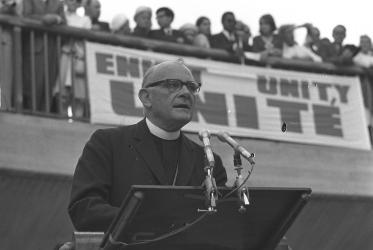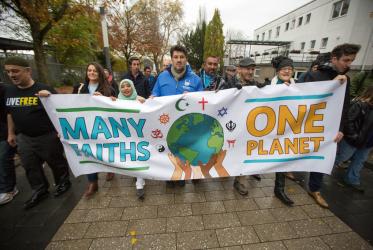Displaying 121 - 140 of 574
Pope Francis at the World Council of Churches
31 May 2018
A tribute to Rev. Dr James Cone
07 May 2018
A life over too soon: WCC mourns Daniela Di Mauro
11 April 2018
WCC calls for immediate end to siege and civilian attacks in Syria
26 February 2018
Religious organizations speak up on refugee crisis at UN event
29 January 2018
COP 23 “debriefing” brings faith and ethical perspectives
23 January 2018
Tveit to World Economic Forum: “Say no to nuclear weapons”
22 January 2018










